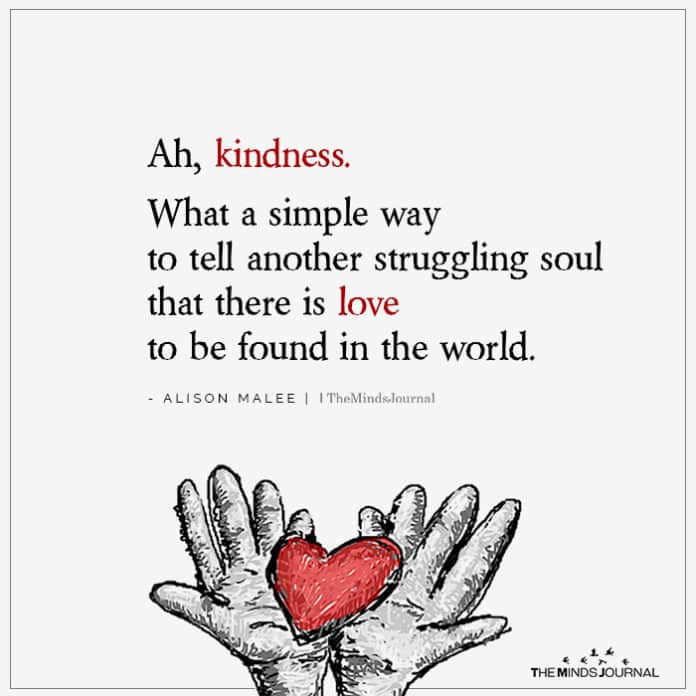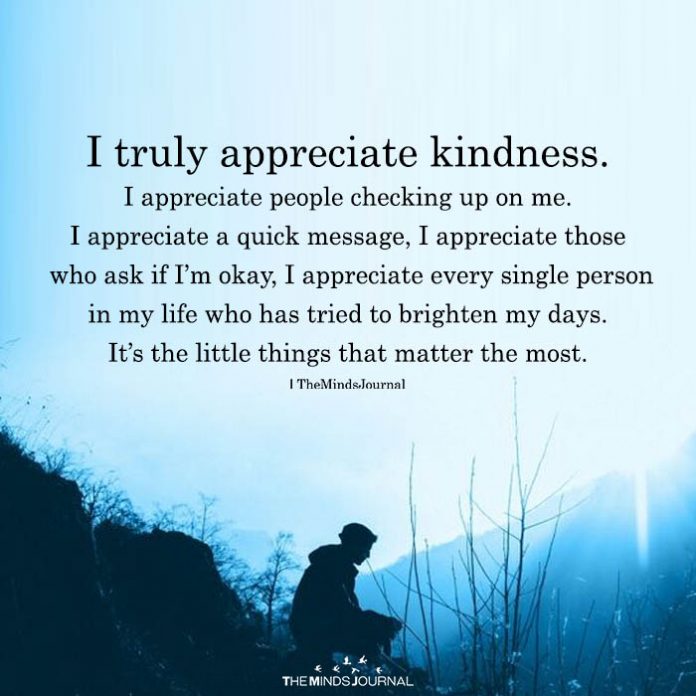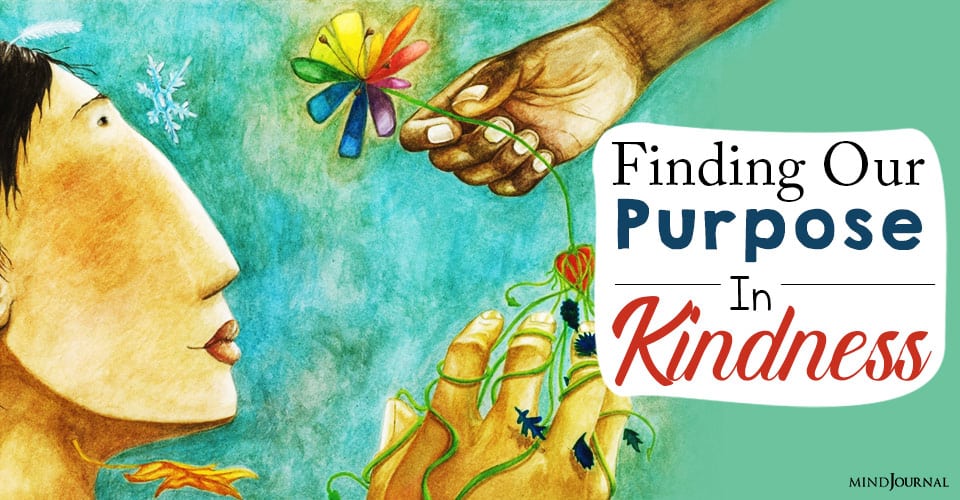We are inclined to find purpose in hate. It is easy for us to embrace the dark side of hate, love, and kindness. This blog explains why we must find purpose in kindness.
In retrospect, Yoda certainly got a few things right. Perhaps the moment where his wisdom shined most brightly was in response to a young Luke Skywalker’s question regarding the “dark side” of the force. Luke asked, “Is the dark side stronger?” Yoda’s immediate response was “No – quicker, easier, more seductive.”
Yoda’s wisdom is unfortunately reflected in many of our lives. Let’s face it – it is at times more natural for many of us to embrace the “dark side” of our emotions. Specifically, it is quicker, easier, and more seductive for us to embrace hate than it is to embrace love.
Also read Why Are We So Fearful Of Finding Our Purpose
This hate can take many forms – anger, judgment, frustration, jealousy, envy, and suspicion. But what is consistent is that hate is fundamentally unkind. We often dehumanize and marginalize the target of our hate. They are less people and more objects that cause us pain and, therefore, are deserving of our hateful emotions. In fact, as time goes on and our hate grows, it fills our thoughts, our feelings, and our behaviors. It seems as though being hateful and unkind becomes our purpose – not dissimilar from Darth Vader.
In contrast, love can feel like a somewhat elusive emotion. All of the various forms of love – from empathy, compassion, and caring to connection and respect – revolve around a basic sense of kindness. Love fundamentally reaffirms a sense of a person’s worth and humanity. And yet it feels as though it takes more time and effort to build and sustain love.

There needs to be consistency in our experience of love so that we can grow to count on it and trust it. Once we’ve built up our trust, we feel more comfortable in expressing and receiving love. And only then will we allow ourselves to find purpose in love – to build our lives around loving and being loved. Otherwise, we often find ourselves drifting from these loving feelings as we embrace the “dark side” of hate and unkindness.
And this process of embracing hate over love is an equal opportunity employer. We are just as likely to hate rather than love ourselves as we do others. We tend to easily believe our more self-critical and shaming narratives about ourselves without challenge. In contrast, we can be more doubtful or even suspicious of kind words or deeds from others and don’t tend to adopt them into our own self-talk. Thus, when we talk about ourselves, it seems as though we are singularly committed to and focused on tearing ourselves down rather than building ourselves up.
Why we can’t embrace the bright side of hate and kindness?
There are several possible reasons. For some of us, we are simply reacting to our environment.
We have heard more hateful than loving messages in our life.
Perhaps we were in a family that focused more on criticism than praise. In a school of hundreds, maybe we can count only a handful of people as friends, with many others passively or actively disliking us.
- Maybe we are rejected by several people before being fortunate enough to find someone who is romantically interested in us, and the rejection can often be defeating and insulting.
A job search could involve hundreds of resumes sent out in the hopes of one interview, let alone a job offer, making us doubt our qualifications to be productive in the world. So why not assume the world is unkind and that we should feel and act accordingly?
Also, read 8 Mindset Shifts To Stop Repetitive Destructive Thoughts
Another possibility is that we struggled receiving love because it did not match how we felt physically or emotionally.
For example, if we struggle with depression, we are biologically wired to be more aware of, focus on, and remember unkind and hateful information that matches our mood state. It feels more real and truthful to us as compared to someone complimenting us. Because how can someone love us when we feel so badly? Or if we are in chronic pain from an injury, the positive feedback we may receive is drowned out by our focus on our physical pain.
But one reason that we embrace the dark side is that we are actually trying to be kind and loving by protecting ourselves.
For example, we may refrain from basking in the glow of receiving a good grade in school for fear of becoming complacent and not working as hard. Or if there is someone who has somehow hurt us, we may avoid being kind to them and letting our guard down to prevent being hurt more.
And if we have already been more attuned to unkind or hateful feedback from the world, we may find a more traditional kind and loving thoughts, feelings, and behaviors towards ourselves and others to be more elusive. Thus, we find purpose in harnessing the power of the dark side to support self-protection.
And there is some truth to these suppositions.
Also, read The Art Of Receiving: Why Is It So Difficult To Receive?
Our emotions are designed to motivate us to a degree.
For example, it is adaptive to feel anxious in the presence or possibility of danger. Similarly, it is useful to feel anger towards people who have wronged us.
But the result is an unfortunate cycle whereby we soon find that we are consumed with our hate and have less emotional space and energy for love. And we find that the simple process of loving and being loved is disrupted – as are the benefits that we receive from that process such as finding connection with ourselves and others.
I have been thinking a lot about this issue since talking with John Joseph on The Hardcore Humanism Podcast. Despite the adversity he has faced throughout his life – abuse, neglect, incarceration, homelessness and addiction – he constantly returns to kindness. He has dedicated himself to being kind to himself and to helping others as he makes progress on his purpose-driven goals. And our conversation got me thinking about how we can be more open to both loving and being loved.
So, what do we do?
Overall, rather than finding purpose in hate, we must find purpose in kindness.
To be sure, there is always a reason for us to hate. And those reasons may feel and actually be quite legitimate. In fact, it’s in recognition of how easily we can be pulled into a hateful, unkind place that we must assert our determination to find purpose in kindness.
This may sound hippy-dippy – but it boils down to very concrete and practical thoughts, feelings and behaviors. Specifically, we must make loving – being kind, compassionate, caring, and giving – a priority in daily practice. We must focus the way we understand and evaluate our lives into two core processes — loving and being loved.
How do we love ourselves and how do we love others, and how do we receive love from ourselves and from others. And we must evaluate what we are thinking, feeling and doing from that perspective. Suddenly, it becomes easier to determine which things we are thinking, doing or feeling that are consistent rather than inconsistent with that kind and loving purpose.

Further, there is a power in finding purpose in kindness. Perhaps the greatest power is that we have control over the process. We can’t always control how we feel. Nor are we always going to be on point with behaving in a kind way to ourselves and towards others. But we control our resolve and determination to make kindness a central focus of our purpose.
Also read Why Healing your Inner Child is Crucial for Self-Growth
At any given moment, there is an infinite number of ways that we can be kind to ourselves and to others. We can decide who we want to be more kind towards and choose concrete loving behaviors that we’d like to undertake. And by putting our focus and actions into daily practice we can build a more loving culture around us.
To be clear, this does not mean ignoring, avoiding, or suppressing the “dark side” of our feelings. It is not a loving act to ignore ourselves or avoid our negative feelings, or the negative feelings of others. This is when we need to employ kindness and listen to ourselves and to others with the intent of helping rather than suppressing. Ultimately, finding purpose in kindness feels better. Over time, it will feel more enticing and natural to be kind and to connect with ourselves and others.
And the dark side won’t feel nearly as quick, easy, or seductive.
Are you ready to find purpose in kindness? Leave your thoughts in the comments below.
Written by: Michael Friedman, Ph.D Originally appeared on: Hardcorehumanism.com Republished with permission










Leave a Reply